Ruth Asmundson
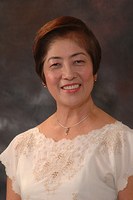 Ruth Uy Asmundson has led a life distinguished by service to the City of Davis as a popular council member, mayor, and community volunteer. She is being honored among “Outstanding Alumni” with a 2010 CA&ES Award of Distinction.
Ruth Uy Asmundson has led a life distinguished by service to the City of Davis as a popular council member, mayor, and community volunteer. She is being honored among “Outstanding Alumni” with a 2010 CA&ES Award of Distinction.
A native of the Philippines, Asmundson earned her bachelor’s degree in chemistry from Adamson University in Manila. She returned there for several years as a chemistry professor after earning her doctorate in agricultural chemistry from UC Davis in 1972. She is a Fulbright scholar who also earned a master’s from Wilkes University in Pennsylvania. She credits her beloved late husband Vigfus Asmundson, also a former Davis mayor, with mentoring her in local politics.
As a public servant, regional policy issues such as transportation, health care, and parks and recreation have been top priorities. She served on a wide variety of commissions, committees, task forces, and boards such as the Sacramento Area Council of Governments, Yolo-Solano Air Quality Management District, Yolo County Transportation District, Water Resources Association of Yolo County, and the Lower Putah Creek Coordinating Committee. She advocates fiscal stability and prudence, interagency collaboration, and economic development.
Asmundson served on the Davis Board of Education for 10 years and has been active with the Davis Educational Foundation, Davis Public Schools Educational Foundation, Filipino Association of Davis, Davis Rotary Club, the International House of Davis, and other community groups. She helped grow Davis’ sister city program in China, the Philippines, and Korea. Appreciative of her roots, she regularly visits the Philippines and has provided assistance to projects in her hometown, Isabela. She also organized a Philippine chapter of the UC Davis Alumni Association.
Asmundson has received many awards and accolades for her devotion to public service, including Davis Citizen of the Year, one of the “100 Most Influential Filipina Women in the U.S.” by the Filipina Women’s Network Summit in Washington, D.C., and the “Pamana Award” for Outstanding Filipinos Overseas from Philippine President Gloria Macapagal Arroyo.
“Ruth is a smart, dedicated public servant who cares a great deal for our community and the people who live here… She has always been a leader, never shying away from the controversial issues of the day, whatever they may be.” — California Senator Lois Wolk
Roger Boulton
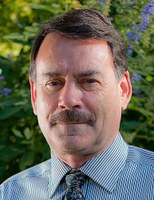
Roger Boulton, a professor of viticulture and enology for more than 30 years, has helped educate a generation of winemakers and bring to fruition a new teaching and research winery that is an unmatched model of sustainability. He is being honored among “Outstanding Faculty” with a 2010 CA&ES Award of Distinction.
A native of Australia and a chemical engineer by training, Boulton arrived in the Department of Viticulture and Enology in 1976 upon receiving his doctorate from the University of Melbourne. He also holds the Stephen Sinclair Scott Endowed Chair in Enology at UC Davis. Boulton’s work involves fermentation and reaction kinetics; methods for predicting color in red wines; physical and chemical stability of wines; the mathematical modeling, computer simulation and control of winemaking operations; and winery design. A dynamic speaker, Boulton is immensely popular with his students and hundreds of individuals who have taken university extension classes from him.
Professor Boulton was named in 2000 among the 50 most influential people in the U.S. wine industry by Wines and Vines magazine. He is co-author of The Principles and Practices of Winemaking, one of the world’s most widely used and cited texts on winemaking. He has been awarded the outstanding paper of the year prize in the American Journal for Enology and Viticulture on four occasions. He delivered the honorary research lecture to the American Society for Enology and Viticulture in 2003. Boulton says that the rarest and perhaps most special honor was being inducted into the Order of the Jurade de Saint Emilion, in Bordeaux, France, during its 800th anniversary celebration in 1999.
Boulton successfully led the team that secured funding of the LEED Platinum enhancements for the new winery, brewery, and food sciences building in the campus’s Robert Mondavi Institute for Wine and Food Science. This facility houses the first winery in the world built to the highest sustainability standards, with features of solar power and rainwater capture that exceed LEED Platinum buildings, and carbon dioxide capture from all fermentations.
“I’m only one of the many lives touched by this wonderful, brilliant man. You will find, if you scratch the surface of any winegrowing alumni, not only a vast reservoir of Roger’s knowledge and insight but the very fabric of how one should conduct one’s self in the wine industry.” — Greg La Follette, founder and winemaker, Tandem Wines
M.R.C. Greenwood
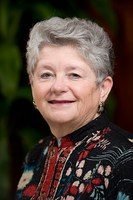 M.R.C. Greenwood, an internationally known researcher and nationally recognized leader in higher education, became the first female president of the University of Hawaii in 2009 after an extraordinary career with the University of California. She is being honored as a “Friend of the College” with a 2010 CA&ES Award of Distinction.
M.R.C. Greenwood, an internationally known researcher and nationally recognized leader in higher education, became the first female president of the University of Hawaii in 2009 after an extraordinary career with the University of California. She is being honored as a “Friend of the College” with a 2010 CA&ES Award of Distinction.
Greenwood joined the UC Davis faculty in 1989, becoming a distinguished professor of nutrition and internal medicine. She also served as vice provost of academic outreach and dean of graduate studies before leaving in 1996 to become chancellor of UC Santa Cruz. In 2004 she went on to UC headquarters to serve as provost and as senior vice president for academic affairs. Her work focused on long-range planning, graduate and professional education, a science and math initiative, and admissions procedures.
Greenwood’s research interests include national science policy, obesity, diabetes, and women’s health. Her work on the role of genetics in the development of obesity and diabetes brought her to international prominence in the field. She is a national leader on science and technology policy and has served on many state and national committees and councils, and with many professional societies such as the American Association for the Advancement of Science and the American Society for Nutrition. From 1993 to 1995 she served as associate director and consultant to the White House Office of Science and Technology Policy.
She credits an act of altruism she received as a young adult with a profound influence on her life. “As a young single mother trying to work my way through college and raise a young son, my life was irrevocably changed when an anonymous donor offered to pay my tuition,” Greenwood said. “This generosity of a stranger allowed me to achieve all that I’ve accomplished, and I have never forgotten it. Nothing can compare to the importance of family, but giving back to the community, and especially to those who deserve a quality education, ranks a close second.”
“M.R.C. has been a respected member of our faculty and has proven herself time and again as an effective administrator. When we asked her to help lead recent academic planning, she helped lead the faculty to make courageous, difficult recommendations that formed the foundation for the changes we’ve been making to maintain the excellence of our college.” — Neal Van Alfen, CA&ES dean.
Jess Jackson and Barbara Banke
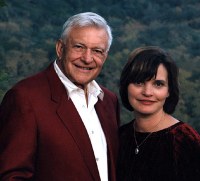 Jess Jackson and Barbara Banke, the husband and wife proprietors of Jackson Family Wines, have an unwavering commitment to family, sustainability, innovation, and philanthropy. They are being honored as “Friends of the College” with a 2010 CA&ES Award of Distinction.
Jess Jackson and Barbara Banke, the husband and wife proprietors of Jackson Family Wines, have an unwavering commitment to family, sustainability, innovation, and philanthropy. They are being honored as “Friends of the College” with a 2010 CA&ES Award of Distinction.
Together they have grown their grape-growing and winery business from its immensely successful Kendall-Jackson Chardonnay to a portfolio of premier estate wineries in California, France, Italy, Australia, and Chile. In 1983 their Chardonnay won the first platinum award ever presented in the American Wine Competition. Cambria, their Santa Barbara County estate, produced the famed 2006 Julia Pinot Noir, named wine of the year for 2009 by Wine Enthusiast magazine. “Our family culture is built on the time-honored principles of hard work, integrity, and uncompromising desire for quality and the long-term stewardship of the land,” Jackson says.
In addition to the family business, Jackson and Banke share much in common. Both are land-use attorneys. They are passionate about thoroughbred breeding and racing and are proud owners of two of the very best thoroughbreds in the country, 2007 and 2008 horse of the year Curlin and reigning horse of the year Rachel Alexandra. They are generous supporters of many different philanthropic causes in Northern California, especially those helping underprivileged children, teenagers, single working parents, and victims of domestic abuse. Together they founded the Sonoma Paradiso Wine Auction, which has raised more than $6 million for children’s charities since its inception in 2004. A breast cancer survivor, Barbara avidly supports cancer research and education, and is a global ambassador for Susan G. Komen for the Cure.
Barbara and Jess have also contributed to the “greening” of the UC Davis teaching winery and look forward to it becoming the first LEED Platinum-certified winery in the world. She says, “We are so pleased to be part of the development of the experimental winery and vineyards to advance the science of sustainable viticulture and to educate the next generation of winemakers.”
“Jess and Barbara are visionaries who have helped shape the California wine industry as we know it today. Their long commitment to sustainable practices in their vineyards and wineries are simply extraordinary and we are proud to have them as founding partners in the LEED Platinum winery at UC Davis.” — Roger Boulton, viticulture and enology professor and the Stephen Sinclair Scott Endowed Chair in Enology
David Mackill
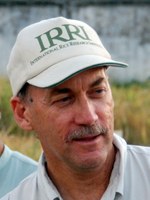 David Mackill, program leader for rainfed rice production at the International Rice Research Institute (IRRI) in the Philippines, has led the development more than 20 rice cultivars adapted to the challenging growing conditions in southern Asia. He is being honored among “Outstanding Alumni” with a 2010 CA&ES Award of Distinction.
David Mackill, program leader for rainfed rice production at the International Rice Research Institute (IRRI) in the Philippines, has led the development more than 20 rice cultivars adapted to the challenging growing conditions in southern Asia. He is being honored among “Outstanding Alumni” with a 2010 CA&ES Award of Distinction.
Mackill earned his bachelor’s, master’s and doctoral degrees at UC Davis—plant science (1976), agronomy (1977) and genetics (1981). In the last 28 years he’s held critical positions for rice genetics and breeding, including 10 years as a U.S. Department of Agriculture research geneticist stationed at UC Davis. In the last 17 years, Mackill and colleagues have identified and transferred a gene conferring submergence tolerance into new high-yielding rice varieties. Monsoonal rains plague southern Asia with flooding that destroys crops. These new rice strains are being adopted on a large scale and will translate into millions of tons of new rice for developing countries.
Mackill has also conducted groundbreaking studies on the molecular genetics of resistance to rice blast, the world’s most destructive and widespread rice disease. He and colleagues published their work on RFLP-gene tagging and were among the first to apply this technology to the study of rice diversity. Using molecular markers he also clarified a previously misunderstood relationship of temperate and tropical rice cultivars grown in the United States. His landmark paper on the subject showed that rice cultivars grown in the southern U.S. were tropical japonicas, not the indicas rice breeders believed they were.
Mackill has received worldwide recognition for his leadership assignments at IRRI, with the international rice genetics symposium, and during his decade of service at UC Davis. While most of his work has been on research, he has also mentored master’s and doctoral students at UC Davis and at the University of the Philippines.
“I am honored to support the nomination of Dr. David Mackill for the Award of Distinction, which I feel is but the first of many such awards he will earn for his work on rice genetics and breeding,” — J. Neil Rutger, retired chief scientist at the Dale Bumpers National Rice Research Center and Mackill’s faculty adviser at UC Davis.
Sarah Otterstrom
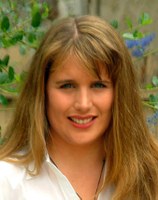 Sarah Otterstrom, who earned a doctorate in ecology from UC Davis in 2004, founded and leads “Paso Pacífico,” a nonprofit conservation organization protecting rare tropical forests, coastal ecosystems, and threatened wildlife in Nicaragua. She is being honored among “Outstanding Alumni” with a 2010 CA&ES Award of Distinction.
Sarah Otterstrom, who earned a doctorate in ecology from UC Davis in 2004, founded and leads “Paso Pacífico,” a nonprofit conservation organization protecting rare tropical forests, coastal ecosystems, and threatened wildlife in Nicaragua. She is being honored among “Outstanding Alumni” with a 2010 CA&ES Award of Distinction.
Otterstrom visited Costa Rica when she was 20 and became enchanted with the diversity of tropical landscapes and the warmth of its people. She stayed and studied biology at a Costa Rican university and worked as a naturalist in the country’s rainforests. Fueled by a desire to become a working scientist, she chose UC Davis’ top-ranked ecology program to pursue her doctorate. Her research on fire ecology brought her to the seasonally dry tropical forests of Nicaragua, where she quickly learned how habitat loss and wildlife trafficking threatened the survival of parrots, sea turtles, and spider monkeys. She also recognized the need for an organization to work with private landowners to promote conservation values and successful land-use practices.
In 2005 she founded Paso Pacífico to bring conservation science and technical assistance to landowners for restoration projects. The organization has accomplished much to protect vital ecosystems in western Nicaragua—six new private reserves created with landowners, a sea turtle protection program that turned former poachers into salaried rangers, and the restoration of more than 1,000 acres with native trees. Hundreds of Nicaraguan students have participated in Paso Pacífico environmental education programs. The emerging community-based conservation ethic is creating new jobs for Nicaraguans.
Otterstrom is also a pioneer in conservation finance, including a reforestation project that provides incentive payments to landowners for carbon stored in forests. Paso Pacífico received international recognition for this project and Otterstrom was invited to become a member of the Clinton Global Initiative, and to participate in activities surrounding the World Climate Summit in Copenhagen. She returns regularly to UC Davis, sharing what she’s learning about strategic conservation management.
“I have taught at UC Davis for 38 years and have known many graduate students. I can say in all honesty that none of them has impressed me so as a person like Sarah has. From our very first contact she was almost overwhelming in her eagerness, her drive, her thirst for knowledge and her desire to serve.” — Arthur M. Shapiro, professor of evolution and ecology
Claire Vallotton
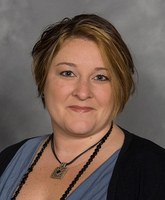 Claire Vallotton, an assistant professor of early child development at Michigan State University, has rapidly become a leading scholar on how preverbal children use symbolic gestures to communicate their needs, desires, and emotions. She is being honored among “Outstanding Young Alumni” with a 2010 CA&ES Award of Distinction.
Claire Vallotton, an assistant professor of early child development at Michigan State University, has rapidly become a leading scholar on how preverbal children use symbolic gestures to communicate their needs, desires, and emotions. She is being honored among “Outstanding Young Alumni” with a 2010 CA&ES Award of Distinction.
She came to UC Davis to pursue a doctorate in human development after graduating summa cum laude from Simpson College in Redding, California in 1997. Vallotton was introduced to the world of infant gestures by UC Davis psychology professor emeritus Linda Acredolo, one of the first to document how preverbal children would invent gestures in an attempt to communicate.
At the Center for Child and Family Studies (CCFS) on campus, Vallotton conducted her graduate work on the role of these symbolic gestures—“infant signs”—in social development and adult-child relationships. She designed a groundbreaking study that discovered how babies as young as 10 months of age can use signs to communicate feelings and emotions to their caregivers. She also documented early manifestation of empathy by one infant toward another. Her research with at-risk families in an Early Head Start program has led to positive changes in parental attitudes toward children and in how parents responded to infants’ distress.
After receiving her doctorate in 2004, she continued this work for two more years as a faculty fellow in the Department of Human and Community Development and subsequently as a postdoctoral fellow at the Harvard Graduate School of Education. In a growing list of peer-reviewed publications she continues to expand our knowledge of how infant symbols build communication skills, shape thoughts, and ultimately affect toddler cognitive development and social skills.
In 2009 she joined the Michigan State faculty and is developing an infant program modeled after the CCFS program at UC Davis. Vallotton earns high praise from the many undergraduate and graduate students she has mentored throughout her career. They cite her dedication to rigorous research, skill as a gifted communicator, and unselfish enthusiasm for the development of human potential.
“Claire is soundly committed to understanding the importance of human development across the life of the individual and to exploring the complex developmental and behavioral factors that impact on the ability to learn and grow.” — Catherine C. Ayoub, Harvard Medical School associate professor
Mark Van Horn
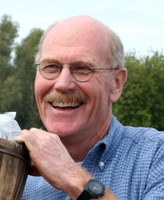 Mark Van Horn, director of the campus Student Farm for 23 years, has overseen the growth and development of a widely respected program that teaches university students and schoolchildren about agriculture, serves as a working laboratory for sustainable farming practices, and produces fresh, organically grown vegetables for the community. He is being honored among “Outstanding Staff” with a 2010 CA&ES Award of Distinction.
Mark Van Horn, director of the campus Student Farm for 23 years, has overseen the growth and development of a widely respected program that teaches university students and schoolchildren about agriculture, serves as a working laboratory for sustainable farming practices, and produces fresh, organically grown vegetables for the community. He is being honored among “Outstanding Staff” with a 2010 CA&ES Award of Distinction.
Van Horn, who harkens from suburban Southern California, chose UC Davis and environs to cultivate his interests in plants, biological sciences, agriculture, and the environment. “As an undergrad, I tried to gain some of the skills and knowledge that many farm kids seem to pick up by osmosis by working summers on farms in Yolo and Solano counties, on my uncle’s farm in Nebraska, and on campus with Charlie Schaller on the barley breeding project.”
He earned his bachelor’s degree at UC Davis in plant science, with a focus on agronomy, in 1978 and then went on to earn two master’s degrees—in plant breeding at the University of Minnesota (1981) and in pest management at UC Davis (1983). Before being hired to run the Student Farm in 1987, he managed an organic farm and also worked with Southeast Asian refugees in Stockton to help them get started in farming.
Van Horn has raised awareness of alternative agriculture through courses and seminars, guidance on sustainable agriculture research, contributions to the new Sustainable Agriculture and Food Systems major, and by teaching “Introduction to Sustainable Agriculture.” In 2006 he was a principal organizer of the first national conference on sustainable agriculture education. And he’s educated farmers through projects such as the Biologically Integrated Orchard Systems (BIOS).
Although Van Horn is quick to credit the support of friends, family, and campus community, others have recognized his accomplishments. He’s been honored with the inaugural “Golden Shovel” award from the graduate group in International Agricultural Development in 2005, the Organic Farming Research Foundation’s “Organic Harvest” award in 2007, and the national Sustainable Agriculture Education Association’s “2009 Educator’s Award.”
"After spending the last three years in the roles of new student, Student Farm employee, teaching assistant, and now staff member at the Student Farm, I have been able to observe Mark Van Horn selflessly share his extraordinary commitment to student learning, experiential education, and ecological agriculture with countless individuals like me." —Ethan Grundberg, Student Farm field operations coordinator